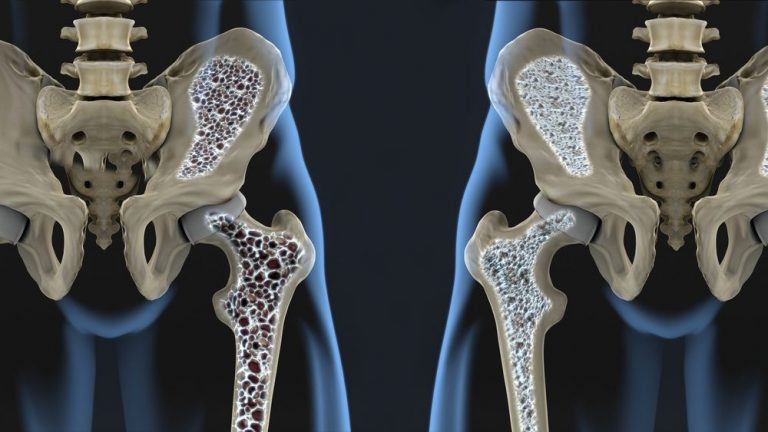Osteoporosis is a condition that weakens bones because it prevents the body from replenishing lost bone material. Bones become so fragile as to be fractured by little falls or even abrupt, forceful coughs.
Most often, individuals with “osteopenia” or “osteoporosis” are instructed to take calcium and vitamin D supplements, as well as dangerous medications called bisphosphonates, like Alendronate (Fosamax), Risedronate (Actonel, Atelvia), Ibandronate (Boniva), and Zoledronic acid (Reclast), which cause even more fragile bones that break under normal loads.
However, this strategy is unreasonable and occasionally destructive.
In other words, even when osteoporotic bone has very low calcium levels, consuming more calcium through supplements does not enhance the condition of osteoporotic bone.
According to one theory, osteoporosis is essentially scurvy of the bones. This indicates that the bones can repair and form a sturdy, healthy new structure if vitamin C levels are raised and the balance of antioxidants is restored. Therefore, using vitamin C may help prevent or treat osteoporosis.
Find out more about:Feta: The World’s Healthiest Cheese That Nobody Talks About
Antioxidants stop oxidation from occurring in the bones or anywhere else in the body, so the bones will suffer as a result of increased oxidative stress in the event that the body is deficient in antioxidants.
Additionally, keep in mind that dietary supplements cannot replace a healthy diet. The bone matrix will incorporate calcium and nutrients where they belong in the case of optimal hormonal balance and nutrition.
Vitamin C, Vitamin K2, Vitamin D3, Boron, Silica, and Magnesium are much more effective in preventing fractures and maintaining bone health than calcium and fosamax supplements, making them a better alternative.
Cardiovascular disease is ultimately caused by calcium building up in the heart’s muscles, heart valves, and blood vessels, but the right ratio of vitamin C, D3, and K2 will direct calcium from food to its proper location instead of your heart and blood vessels.
Vitamin C is essential for the production of collagen, mineralizes bone and stimulates bone formation, reduces oxidative stress, and inhibits bone-absorbing cells to stop excessive bone deterioration.
When levels are low, the converse occurs: osteoclasts, which break down bone, multiply, while osteoblasts, which deposit minerals and create new bone, do not.
Seniors with broken bones have significantly lower blood levels of vitamin C, according to research.
Take vitamin C supplements without hesitation because they are the safest and least poisonous supplements on the market. As a general dietary supplement, adults should consume 2 to 5 grams of sodium ascorbate per day. Liposomal vitamin C can also be used, however you should avoid Ester-C and calcium ascorbate. Choose Camu-Camu if you want to use a natural plant-based source.
According to holistic health professionals, vitamin D3 with a level of between 50 and 70 mg/ml can strengthen the immune system and enhance bone health. Vitamin K2 is critical for cardiovascular and bone health.
After reading this text you can also read about: Eat More Beets To Boost Recovery, Fight Inflammation, Support Liver Detox And Help Lower Blood Pressure



